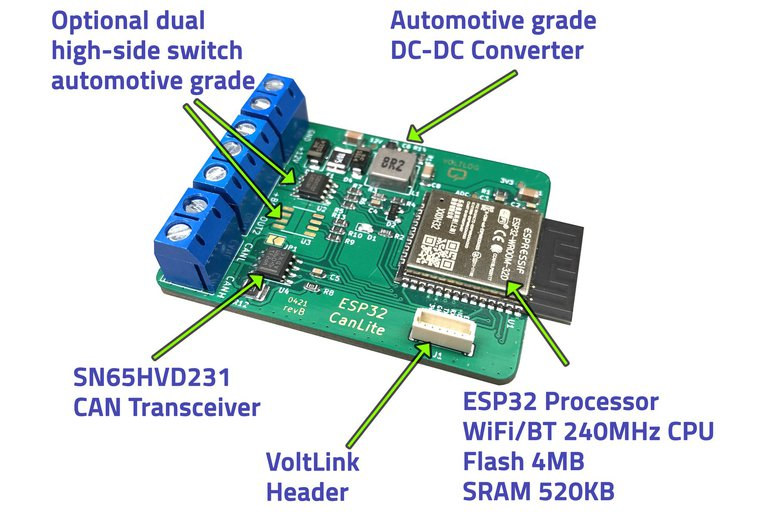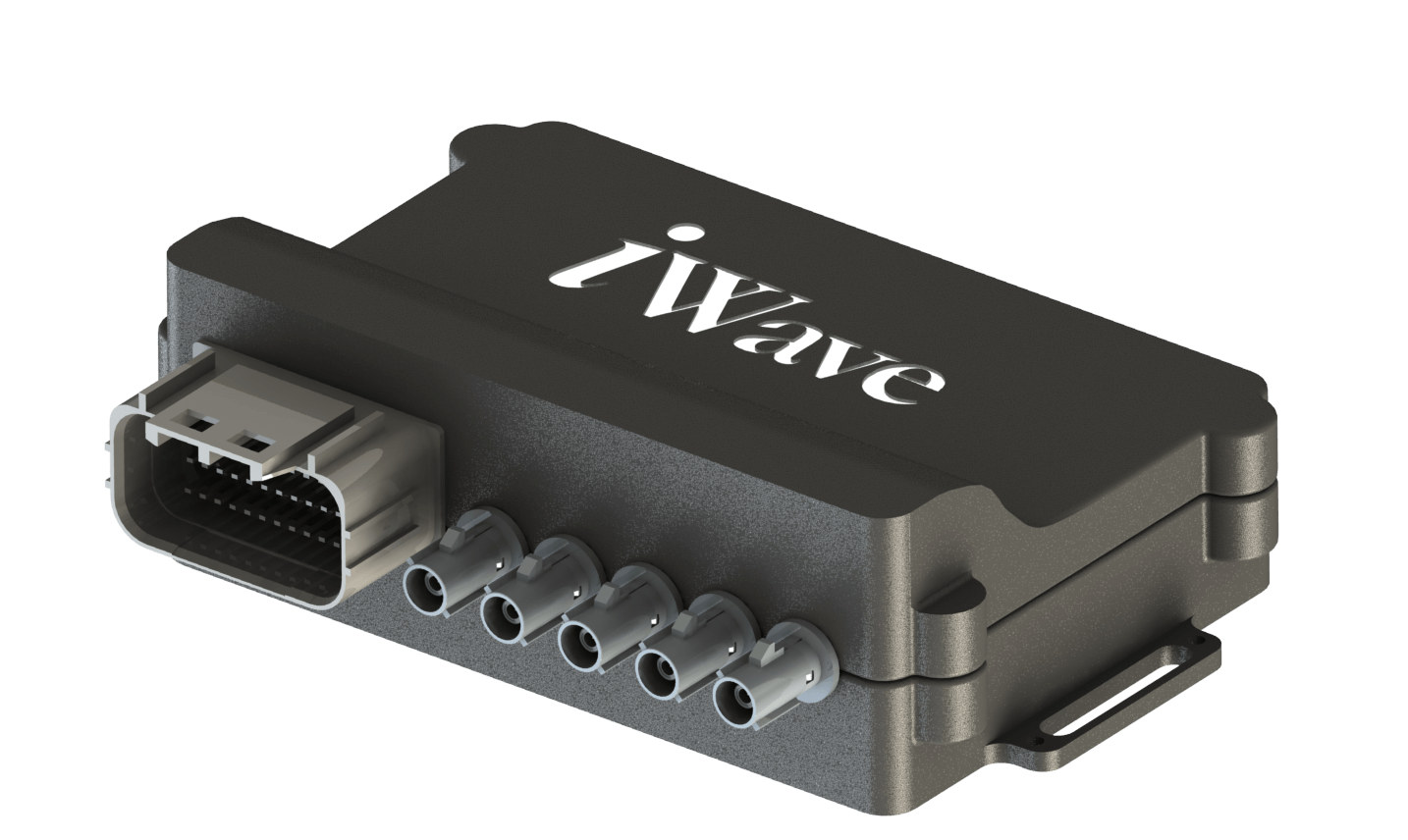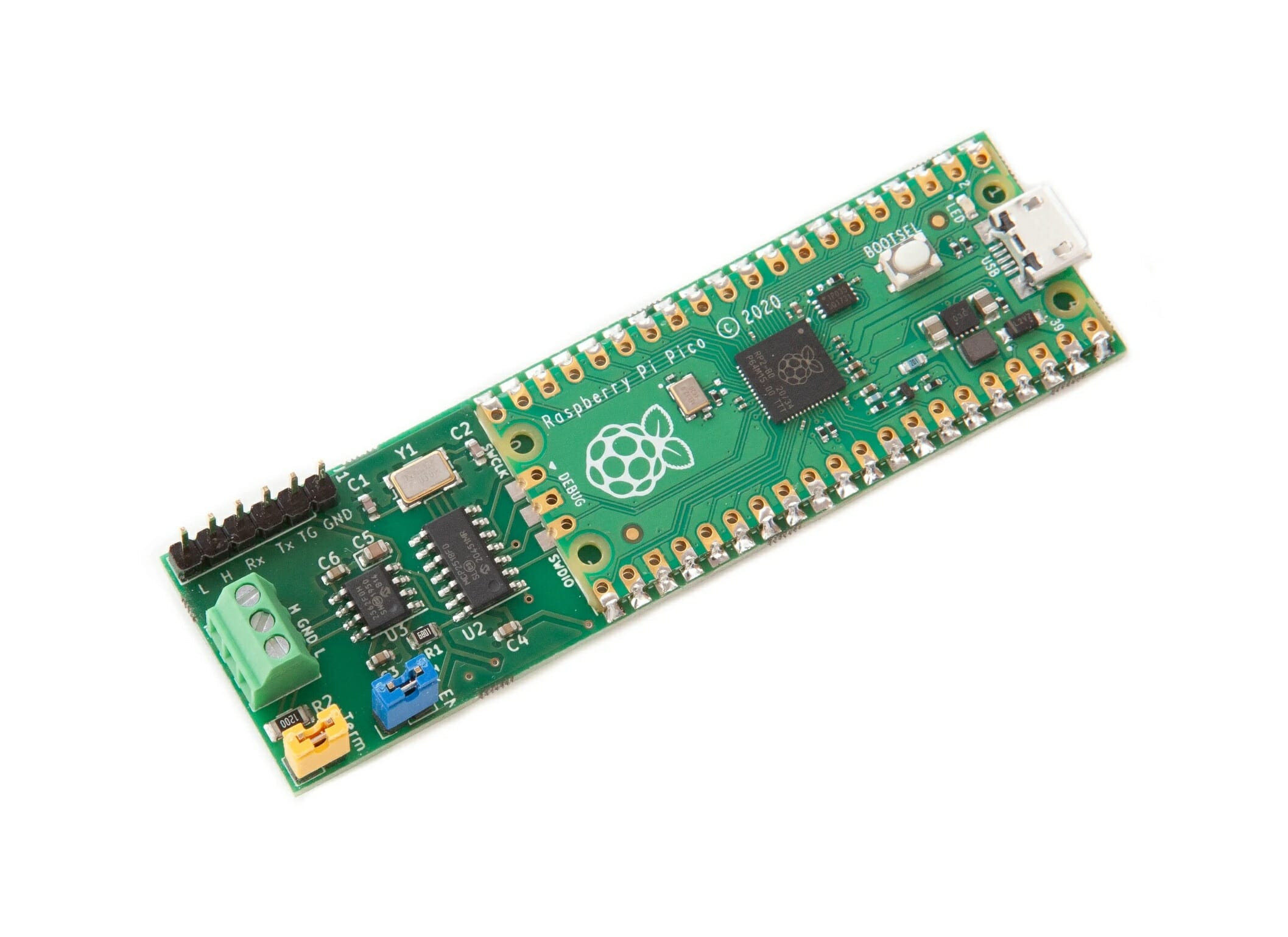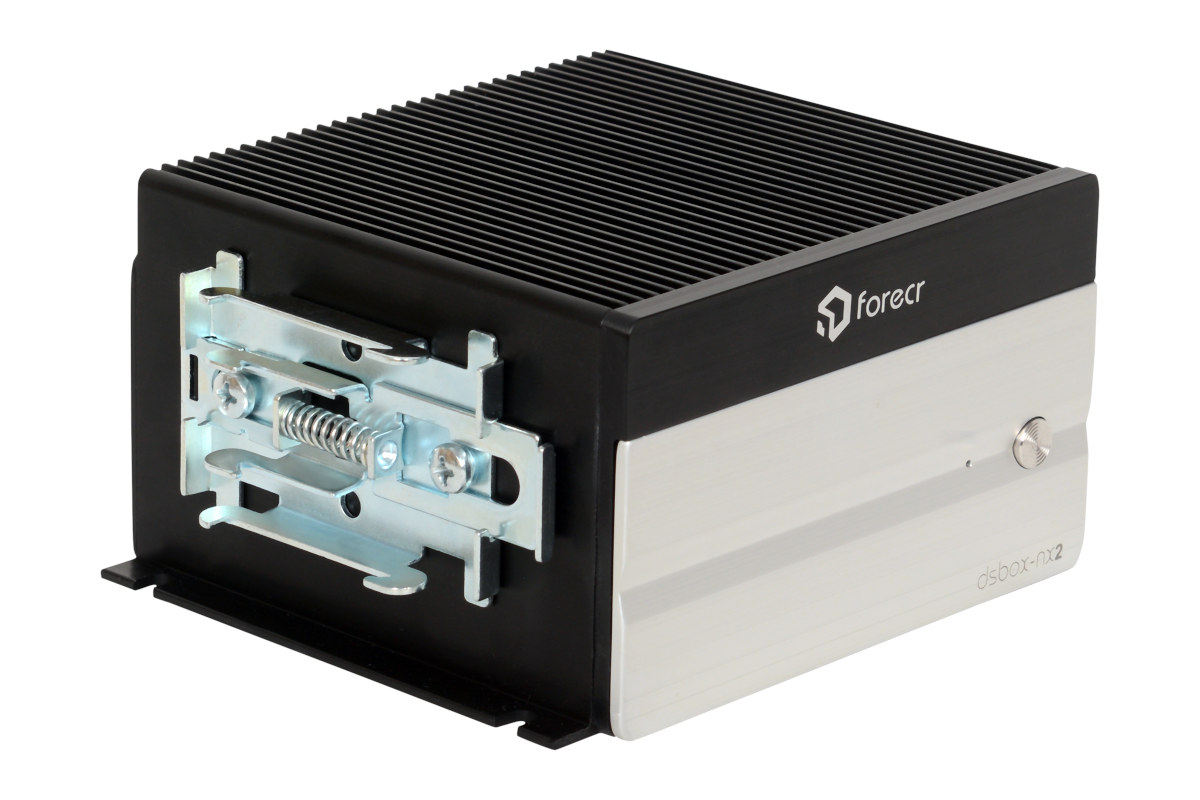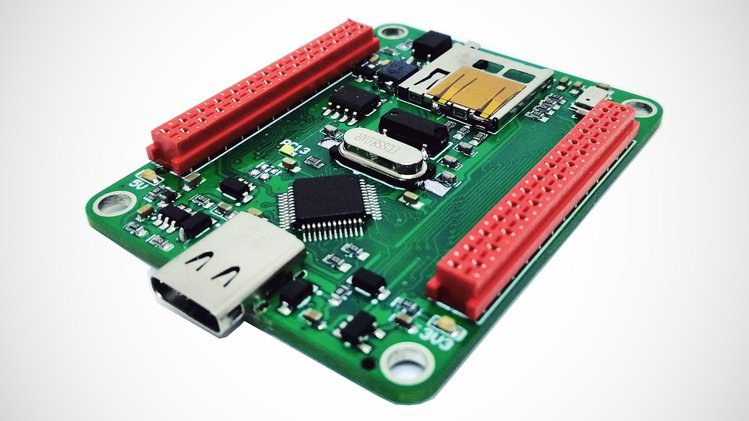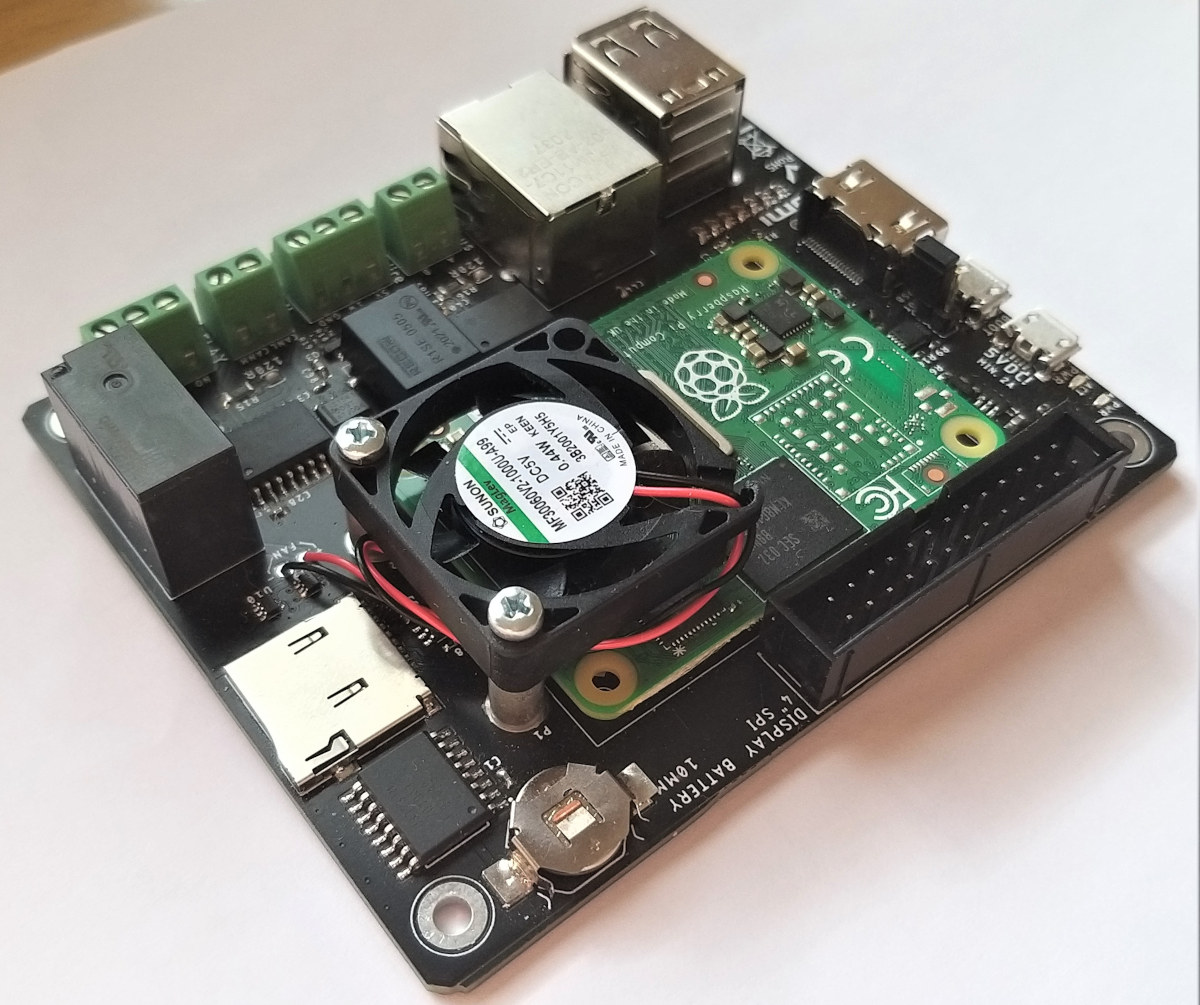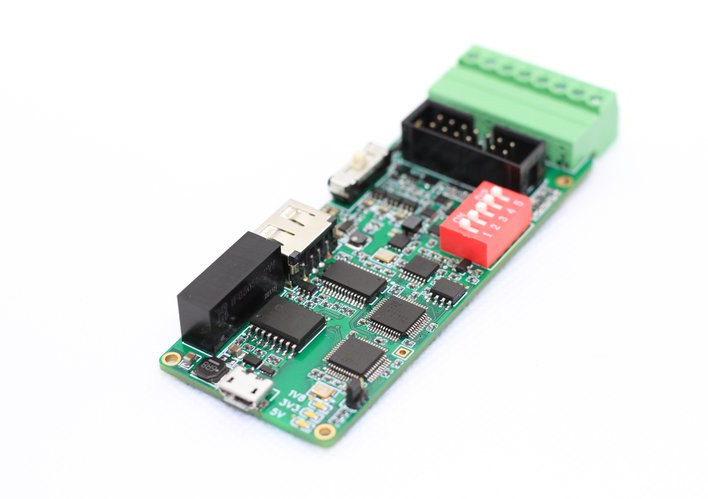Voltlog’s CanLite is not the first ESP32 CAN bus board we’ve covered here at CNX Software, having written about Olimex ESP32-EVB and CAN32 boards a few years ago. But the open-source hardware, compact CanLite board offers an alternative for CAN bus hacking with a built-in automotive-grade DC-DC converter as well as an optional two-channel high-side automotive-grade switches capable of switching up to 6A per channel. CANLite key features and specifications: Wireless module – ESP32-WROOM-32D module with Espressif ESP32-D0WD dual-core Tensilica processor, 4MB SPI flash, Wi-Fi 802.11 b/g/n up to 150 Mbps, Bluetooth 4.2 LE Terminal block for CAN Bus (ISO 11898-2 standard) up to 1Mbps via SN65HVD231 CAN transceiver. Output – High-side switching of the VBAT input up to 6A. (only if the option is purchased during checkout). Programming – 6-pin JST-SH VoltLink pin header Power Supply – 12V/0.5A via terminal block Dimensions – TBD The ESP32 CANLite board supports […]
Linux-based telematics gateway offers four CAN Bus interfaces, cellular & WiFi connectivity, and more
iWave Systems already provided some Linux-based vehicle diagnostic systems such as their NXP i.MX 7 powered OBD-II dongle with 4G LTE and GPS. But their latest model, the iW-Rainbow-G41 telematics gateway, goes a step further with an NXP i.MX 8 processor controlling four CAN Bus interfaces, and offering both wired (RS232/RS485, automotive Ethernet) and wireless (cellular, Wifi, Bluetooth) connectivity options. iW-Rainbow-G41 telematics gateway specifications: SoC – NXP i.MX 8 “DXL” Arm processor (Not sure what DXL is exactly, and iWave has yet to reply to our request for more information, but NXP shortly mentions i.MX 8X/XL processors in a page about V2X applications) System Memory – 1GB LPDDR4 (Upgradable up to 2GB) Storage – 8GB eMMC flash (Upgradable up to 64GB) Communication Interfaces Cellular – 4G LTE Cat 4, LTE Cat M1/NB1, option to upgrade to 5G; E-Call support 802.11 a/b/g/n/ac WiFi 5 with optional support for 802.11ax WiFi 6 […]
CANPico open-source board adds CAN Bus to Raspberry Pi Pico
Canis Labs’ CANPico board adds a CAN bus to the Raspberry Pi Pico. The open-source hardware board can then be used as a CAN adapter connected to a host computer The company also provides an open-source MicroPython SDK, as well as a pre-built firmware image to quickly make it started, making it possible to easily control or monitor the CAN bus using Python. CANPico specifications: MCU – Raspberry Pi Pico with RP2040 dual-core Cortex-M0+ microcontroller CAN interface through 3-pin terminal block implemented via: Microchip MCP2517/18FD (SPI) CAN controller with 2Kbyte buffer space Microchip MCP2562FD CAN transceiver. Misc Jumpers to connect a standard 120Ω CAN bus termination resistor and for disabling transmit access to the CAN bus 6-pin header for a logic analyzer or oscilloscope to see what’s happening on the bus Dimensions – Approx. 75 x 24mm The MicroPython SDK for CANPico contains two major APIs with CAN and CANHack. […]
DSBOX-NX2 – An NVIDIA Jetson Xavier NX Industrial Fanless PC
Turkish company Forecr has launched DSBOX-NX2 NVIDIA Jetson Xavier NX based industrial fanless PC equipped with the company’s own DSBoard-NX2 carrier board and designed for “multi-stream deep learning edge analytics” and IIoT applications. The compact embedded computer comes with 8GB RAM, up to 2TB SSD storage, as well as HDMI 2.0 output, Gigabit Ethernet, two USB 3.1 ports for high resolution cameras, serial ports, and some GPIOs among other features. Forecr DSBOX-NX2 specifications: System-on-Module – NVIDIA Jetson Xavier NX module with hexa-core NVIDIA Carmel ARM v8.2 64-bit processor, NVIDIA Volta GPU with 384 CUDA core & 48 Tensor Cores, 8 GB 128-bit LPDDR4x, 16GB eMMC flash Storage – M.2 Key M SSD slot, MicroSD card slot Video Ouput – 1x HDMI 2.0 up to 3840×2160 at 60 Hz Networking Gigabit Ethernet Wireless – WiFi, Bluetooth, 4G LTE, 5G connectivity by extension sockets USB – 2x USB 3.1 Type-A Expansion 1x […]
Board::mini development tools offer a complete Vehicle-Hacking Platform (Crowdfunding)
If you are looking to connect to a vehicle’s CAN bus, then the newly launched open-source board::mini development tools include a board and expansion boards that will aid your application. BMC labs have introduced a development board based on the STM32 MCU and supporting expansion boards to increase the capabilities of the baseboard via a crowdfunding project. As mentioned earlier, the board:mini base development board features an STM32 MCU at its heart and comes with a CAN transceiver. For those who do not know what a CAN transceiver is, it just transmits and detects data on the CAN bus. The board:mini project also includes three expansion boards designed to fit on top of the base development board. The bmc::board project was born to produce development tools appropriate for both field- and industrial-prototyping work. These boards were not designed to sit on a workbench. We ourselves have a habit of strapping […]
Raspberry Pi CM4 Carrier Board comes with RS485/Modbus, CAN, 1-wire interfaces (Crowdfunding)
Another day, another Raspberry Pi CM4 carrier board. Just like the TOFU carrier board, CM Hunter carrier board for Raspberry Pi CM4 targets industrial applications, but in a different way, as it focuses on industrial communication protocols with Galvanically-Isolated RS485/Modbus, 1-Wire, CAN 2.0B, and together with more common interfaces like Ethernet, HDMI, USB, etc… CM Hunter specifications: Supported systems-on-module – Raspberry Pi Compute Module 4 / 4 Lite Industrial communication Interfaces Isolated RS485/Modbus (Profibus compatible) based on Texas Instruments ISO1410 controller Isolated CAN 2.0B based on Microchip MCP2515 controller and MAX14879 CAN transceiver Isolated 1-Wire via Maxim DS2482 I2C bridge Storage – MicroSD card slot Video Output – HDMI 2.0, optional 3.5-inch or 4-inch 480×320 LCD display with resistive touch connected over SPI Networking – Gigabit Ethernet RJ45 port and optional 802.11b/g/n/ac WiFi 5 plus Bluetooth 5.0 LE USB – 2x USB 2.0 ports, 1x micro USB 2.0 OTG port […]
Open-source VSCP IoT/M2M automation framework supports Arduino, Raspberry Pi
VSCP (Very Simple Control Protocol) is an open-source IoT framework that works on development boards like Arduino or Raspberry Pi, and lets you control IoT home automation tasks. The framework is highly scalable, has a very low footprint, and as such is specially designed for resource-limited devices. VSCP is an open-source standard protocol for m2m, IoT and other remote control and measurement applications. It enables simple, low-cost devices to be networked together with high-end computers and/or to work as an autonomous system, whatever the communication media is. The VSCP Protocol has two levels: Level 1 and Level 2. The protocol was primarily used in CAN networks (that is Level 1 for tiny microcontrollers) because CAN is cheap and reliable with high efficiency. However, VSCP can be used for faster transport layers such as TCP/IP, so here comes Level 2 which achieves better performance. We have already seen Souliss, an open-source […]
Ollie USB board exposes isolated UART, CAN, USB, RS485 & RS232 interfaces (crowdfunding)
Just like months, we wrote about Tigard open-source USB FT2232H board for hardware hacking with easy access to OpenOCD, JTAG, Cortex, flashrom interfaces used to debug/flash boards, extra I/Os with UART, SPI, and I2C, as well as a header to connect a logic analyzer and observe signals. If the board does not exactly match your requirements, Ollie USB board might, also it may not serve exactly the same purpose(s). The board acts as a USB bridge to isolated UART (x2), CAN, USB, RS485, and RS232 interfaces. Ollie specifications: MCU – STMicro STM32F042 Arm Cortex-M0 microcontroller with CAN interface Host interface – Micro USB port Isolated interfaces (all with ESD protection) 2x UART ports up to 12 Mbps with 1.8/3.3/5 V voltage levels (set by slide switch) CAN bus based on CANable/CANtact open hardware, flashed with dual firmware CANtact and Candlelight (switch selectable) and equipped with termination resistor switch Downstream USB […]


